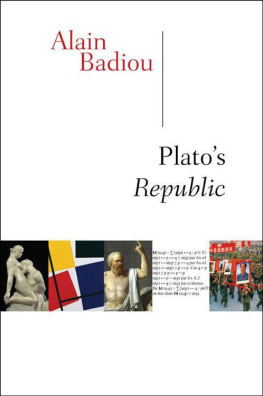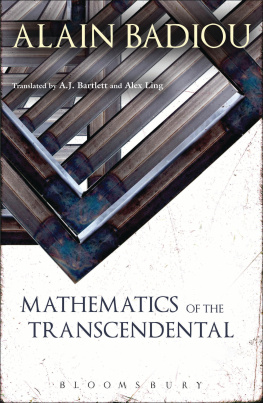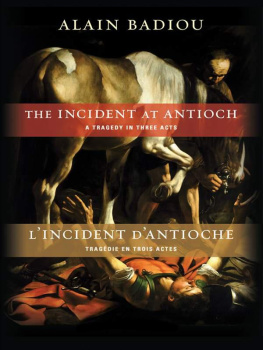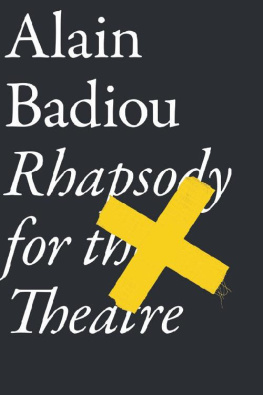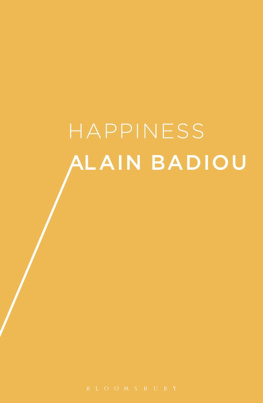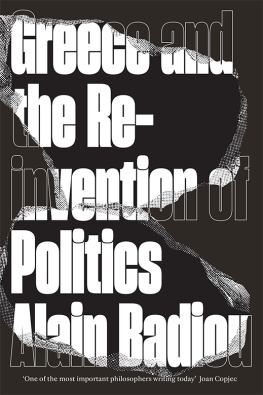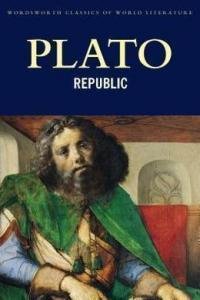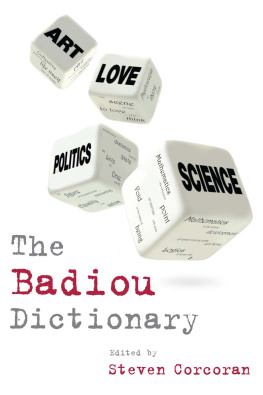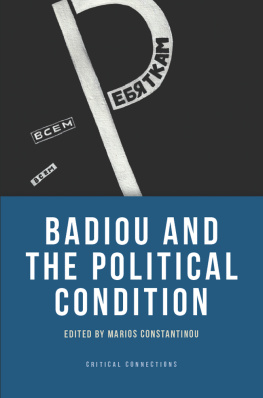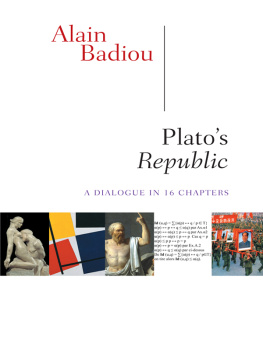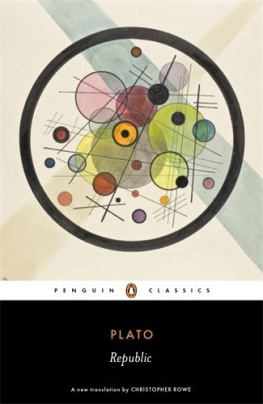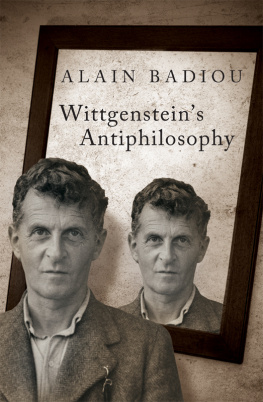PLATOS REPUBLIC
PLATOS REPUBLIC
A Dialogue in Sixteen Chapters, with a Prologue and an Epilogue
ALAIN BADIOU
Translated by Susan Spitzer
polity
First published in French as La Rpublique de Platon Librairie Arthme Fayard, 2012
This English edition Polity Press, 2012
Polity Press
65 Bridge Street
Cambridge CB2 1UR, UK
Polity Press 350
Main Street
Malden, MA 02148, USA
All rights reserved. Except for the quotation of short passages for the purpose of criticism and review, no part of this publication may be reproduced, stored in a retrieval system, or transmitted, in any form or by any means, electronic, mechanical, photocopying, recording or otherwise, without the prior permission of the publisher.
ISBN: 978-0-7456-6352-4
A catalogue record for this book is available from the British Library.
The publisher has used its best endeavours to ensure that the URLs for external websites referred to in this book are correct and active at the time of going to press. However, the publisher has no responsibility for the websites and can make no guarantee that a site will remain live or that the content is or will remain appropriate.
Every effort has been made to trace all copyright holders, but if any have been inadvertently overlooked the publisher will be pleased to include any necessary credits in any subsequent reprint or edition.
For further information on Polity, visit our website: www.politybooks.com
CONTENTS
The numbers and letters in parentheses after each chapter title (e.g. 327a) refer to a division of the text into sections, each usually about ten lines long. Although this division owes its existence solely to ancient methods of editing and paginating manuscripts, it has become the traditional one, enabling readers to find their place not only in the Greek text but also in the available translations, which include such indications in the text something I have not done.
INTRODUCTION
Badious Sublime Translation of the Republi c
Kenneth Reinhard
Alain Badiou stands, virtually alone among major philosophers at the beginning of the twenty-first century, as a self-proclaimed Platonist, the champion of what he calls a Platonism of the multiple.
For Badiou, Plato is the first warrior in the eternal battle of philosophy against sophistry, of truth against opinion, and the progenitor of the living idea of communism. If, as Badiou argues, sophistry is a system that creates a dissymmetry of power through the general equivalence of opinions, we might say that philosophy uses the dissymmetry of opinions and truths to create a general equivalence or availability of power. There is no place for truth in sophistic debates, where it will inevitably be suspected of authoritarianism. Truth cannot be produced through the exchange of opinions, and in the Republic the arch-sophist Thrasymachus is not convinced by Socrates arguments but merely reduced to silence. Truth is already there, embodied in the subjective position represented by Socrates, and Platos dialogues, above all the Republic , will explore and articulate its consequences.
; a forthcoming screenplay on The Life of Plato ; and the translation or, as he calls it at times, hypertranslation into French of Platos Republic translated here into living American English by Susan Spitzer.
If a certain critique of Plato begins already with Aristotle, the twentieth century was pervasively anti-Platonic. Many otherwise disparate schools of thought agree in their rejection of what they call Platonism. In the opening session of his 2007 seminar on Plato (as well as in numerous essays and talks), Badiou describes six major forms of modern anti-Platonism:
1 the vitalist anti-Platonism of Nietzsche, Bergson, and Deleuze, who see Plato as the theorist of an unchanging ideal realm of perfect being, hostile to the living reality of becoming. Plato, according to Nietzsche (perhaps the most pre-eminent among modern anti-Platonists), is the first priest, the first to turn life against itself, and thus one source of the metaphysical disease of which we must still be cured;
2 the analytic anti-Platonism of Russell, the later Wittgenstein, and Carnap, who associate Plato with the belief in supersensible mathematical objects;
3 Marxist anti-Platonism, for which Plato is the origin of the notorious sensible/intelligible opposition, hence the source of idealism and the beginning of the history of ideology. Badiou frequently refers to this mode of anti-Platonism by citing the dictionary of philosophy commissioned by Stalin, where Plato is defined as ideologue of the slave owners;
4 the existentialist anti-Platonism of Kierkegaard and Sartre, who see Plato as subordinating the singularity of existence and the creative negativity of non-being to eternal essences and to the stasis of being;
5 Heideggerian anti-Platonism, according to which Plato obscures Being itself (and thus the ontological difference between Being and beings) by submitting it to the representational idea. For Heidegger, Plato flattens the originary Greek account of truth as aletheia , unconcealing, into one of knowledge as correspondence;
6 the anti-Platonism of political philosophy, which regards Platos politics as totalitarian, as closing off the free circulation of opinions in order to assert a rigid politics, which tolerates no dissent. Exemplary here is Karl Poppers attack on Plato in The Open Society and Its Enemies , but Badiou also includes the more noble example of Hannah Arendt.
Badiou argues that each of these anti-Platonisms accuses Plato of ignoring a key element that they consider to be the very kernel of the real: for the vitalists, becoming; for analytic philosophy, language; for Marxists, concrete social relations; for the existentialists, negativity; for the Heideggerians, thinking as distinct from mere knowledge; and for political philosophy, democracy itself. But these objections to Plato are inconsistent with each other and do not add up to a coherent attack or to a counter-position beyond their shared anti-Platonism. The two notable exceptions to this general agreement that Plato fails to address the real, both emerging from the Maoism of the sixties, are what Badiou calls the mystical Platonism of Guy Lardreau and Christian Jambet and Badious own mathematical Platonism. Mathematical Platonism, according to Badiou, is a subjective construction that begins with the thesis that there is something incommensurable about all existing measures, something similar to the irrational relation between a diagonal and the sides of a square. But, unlike the exponents of mystical Platonism, Badiou insists that it is incumbent on us to determine this non-relation, to construct a new measure for the immeasurable; and in the extended work along this process, Plato will be our guide.
The fact that two out of Badious three current projects on Plato are themselves works of art indicates the special position Plato has among Badious primary influences or masters: for him, Plato is the great philosopher of the Idea, of course, but he is also a powerful literary artist in his dialogues and, according to legend, the author of several tragedies in his youth. Badious theatricalization of the Republic also involves the redistribution of comments from Socrates to his interlocutors, so that what in Plato is a series of statements in Badiou becomes more dialogic, more representative of conflicting desires. And, while Socrates and his young disciples discuss the most serious questions of truth, justice, and communism, the mood of their discourse shifts rapidly from excitement to boredom, from melancholia to elation, from hilarity to frustration, and from petty rivalry to earnest collaboration. It is as if the austere situation of a play by Beckett were inhabited by characters by Brecht. At one point in Badious translation Socrates remarks: I had a calling to become a comic actor [] but I preferred the theater of philosophy. Something similar could be said about Badiou, who began his career as a novelist and later became a playwright. Moreover, Badious literary works are often based on a certain kind of translation. His six plays (two tragedies, The Red Scarf and Incident at Antioch , and the four Ahmed comedies) imitate dramas by Aristophanes, Molire, and Claudel, transposing elements of character and plot into novel situations and liberally sampling fragments and at times entire passages of text. Although Badious translation of the Republic is the most sustained presentation to date of his philosophical relationship with Plato, it should also be considered a central part of his literary or dramatic oeuvre a sort of Platonic Variations or Incident at Piraeus. Some readers may be scandalized by the liberties Badiou takes in his translation: his systematic modifications of certain terms (e.g. the gods is translated as the Other), his occasional elimination of entire passages (e.g. Platos notorious argument for euthanasia, or much of the discussion of the family), his pervasive anachronistic references (e.g. to AIDS, iPods, or Euros), and his frequent expansion of brief comments into lengthy discourses. Badious language (and Susan Spitzers translation) is colloquial, colorful, and at times rather gritty: Socrates and his interlocutors speak like Europeans or Americans of today or of the recent past, and their cultural references are both classical and contemporary; they move easily between Homer and Pessoa, Heraclitus and Deleuze, Aeschylus and Pirandello.
Next page
